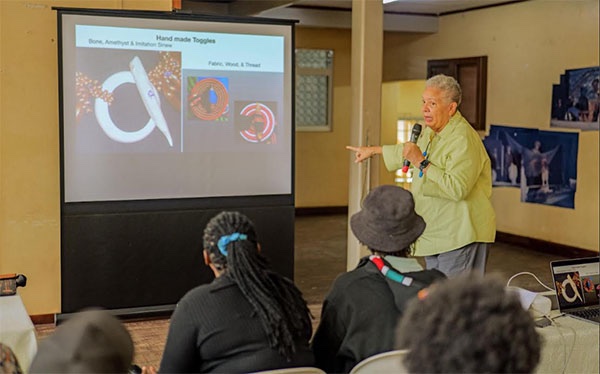
The Embassy of the Republic of Uganda in Washington recently launched a six-day training program aimed at boosting the country’s cultural exports by equipping 100 Ugandan artisans with export skills.
The program that ran from August 18 to August 23 was aimed to prepare local craft producers to tap into the lucrative United States market, harnessing Uganda’s rich cultural heritage to foster economic growth and create sustainable livelihoods.
Funded through the Ugandan Mission’s Economic and Commercial Diplomacy (ECD) Fund, the program is designed to enhance artisans’ skills across product development, finishing techniques, and compliance with international export standards.
It’s part of Uganda’s broader strategy to diversify and expand its exports, particularly in the creative industries, with a focus on African crafts and souvenir merchandise. In his remarks during the launch, Benon Kayemba, the head of Consular Services at Uganda’s ministry of Foreign Affairs, emphasized the importance of the initiative.
“Uganda’s crafts are more than just products; they are expressions of our identity, culture, and creativity,” he stated.
“Through this program, we are positioning our artisans to access new markets, increase their incomes, and showcase Uganda’s unique cultural heritage on the global stage.”
Uganda’s exports to the United States have grown nearly 28-fold between 1996 and 2022, according to data from the Uganda Bureau of Statistics (UBOS). From under $10 million in the late 1990s, exports surged to $62 million in 2017, before reaching record highs of $87 million in 2021 and $89 million in 2022.
Key drivers include coffee, vanilla, and specialty goods, underscoring the potential of Uganda’s high-value products to strengthen trade ties, diversify exports, and fuel economic growth. Expanding artisan crafts into this pipeline represents a new opportunity to create jobs, empower communities, and position Uganda more competitively in the global creative economy.
Elaine Robnett Moore, a renowned international trainer and facilitator involved in leading the program, highlighted the importance of aligning products with international market standards.
“Ugandan artisans are incredibly talented and produce unique work,” she said.
“Our goal is to refine their craft, ensuring their products can compete on the shelves of global trade hubs and meet the expectations of modern consumers.”
Participants in the program were engaged in discovery sessions, hands-on workshops, and practical training tailored to meet export standards. At the end of the training artisans where able to present their newly-developed products that blended traditional cultural elements with market appeal.



